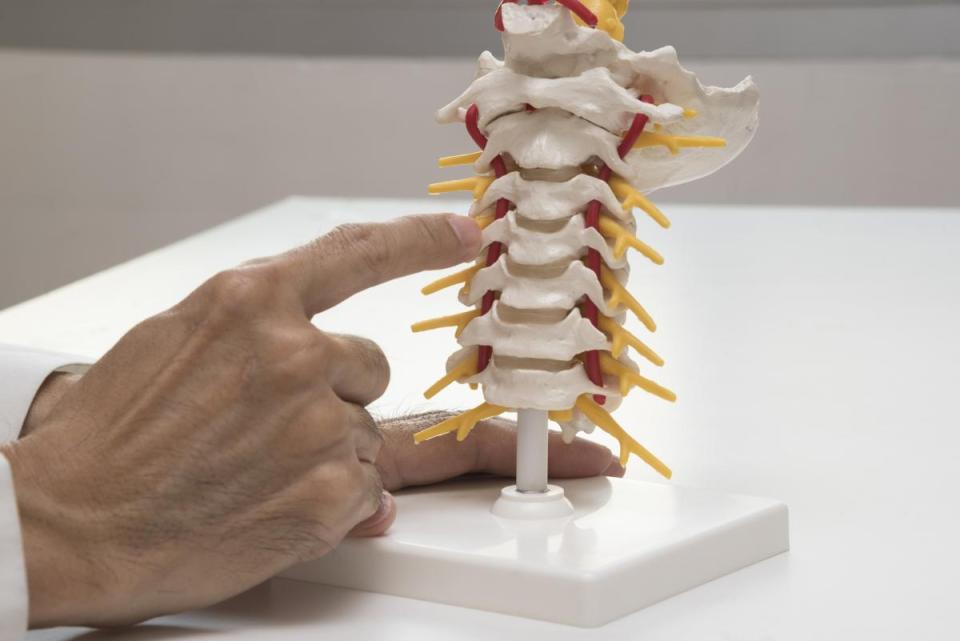
Sometimes the pain comes out of nowhere—you're bending to pick something up and feel a stabbing pain in your lower back. Maybe you've been in a car accident and now have a dull ache in your neck that won't go away.
Back and neck pain disrupts the lives of thousands of men and women each day. In fact, about 80% of adults experience back pain at some point in their lives, and it's one of the leading causes of job-related disability, according to the National Institute of Neurological Disorders.
If you're struggling with this type of pain, don't lose hope. There have been a number of advances in innovative treatments and spine surgery in recent years. Many are minimally invasive, resulting in less pain and recovery time.
A leading cause of pain
When it comes to your spinal column, small injuries can have serious consequences, leaving you unable to move, let alone work.
Spine or back pain is the second most common cause of physician office visits, said Abhishiek Sharma, MD, a neurosurgeon and an independent member of the HonorHealth Medical Staff.
Injury to the back and neck commonly results in acute or sub-acute pain, or pain that lasts between one to three months. In these situations, self-care and visits to a general practitioner could be enough to heal the injury.
Because the spinal column is so central to your mobility and everyday functionality, back and neck pain can disrupt almost every aspect of your life.
Advances in treatment options
The first resort for non-urgent neck or back pain is usually nonsteroidal anti-inflammatory drugs, plenty of rest for the affected area, physical therapy or injection therapy.
However, if you’re desperately grappling with chronic pain or serious injury, you should realize that spine surgery has advanced significantly over the past several years and minimally invasive surgery has improved outcomes.
If various nonsurgical treatments don't help with your pain over time, your doctor may recommend surgery, especially if you have specific conditions like spinal stenosis, sciatica, spondylolisthesis or degenerative scoliosis.
"We can now accomplish great surgical outcomes with smaller incisions, less post-operative pain, less operating time, less anesthesia and quicker post-surgical mobilization," said Dr. Sharma.
"The treatments are extremely effective for the right patient," he continued. "With the advances in spine surgery, patients recover quickly and are back to work earlier with happier and more productive lives."

